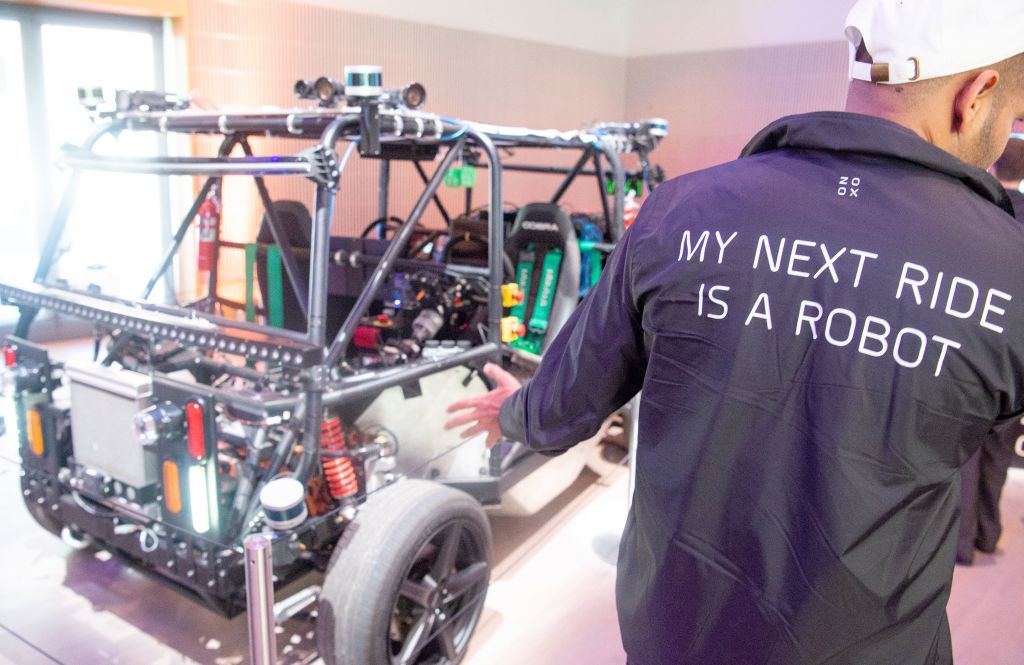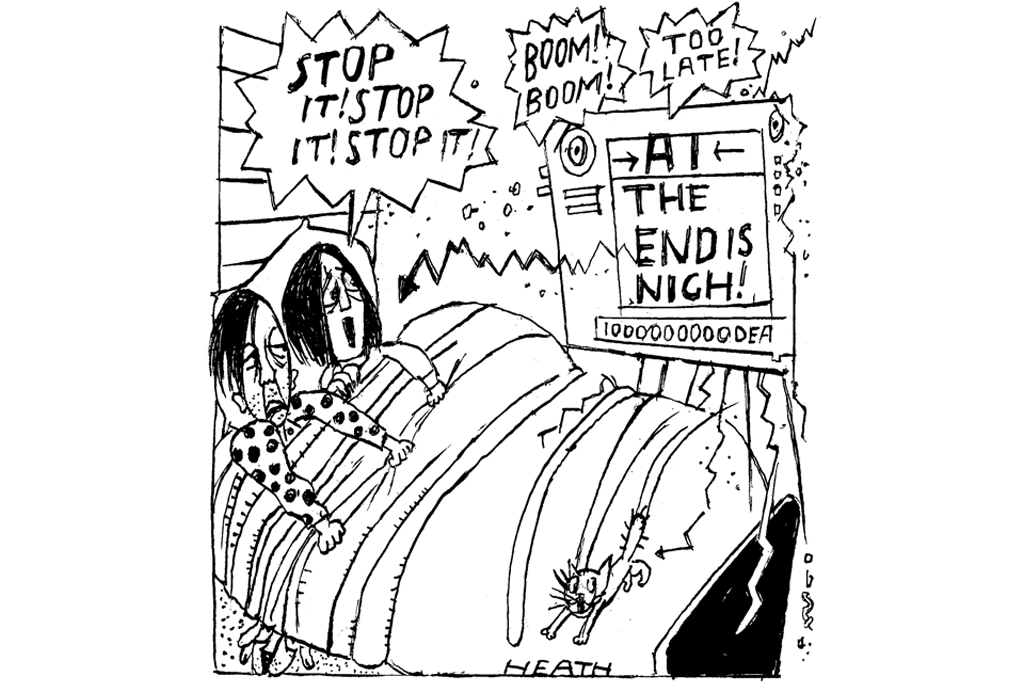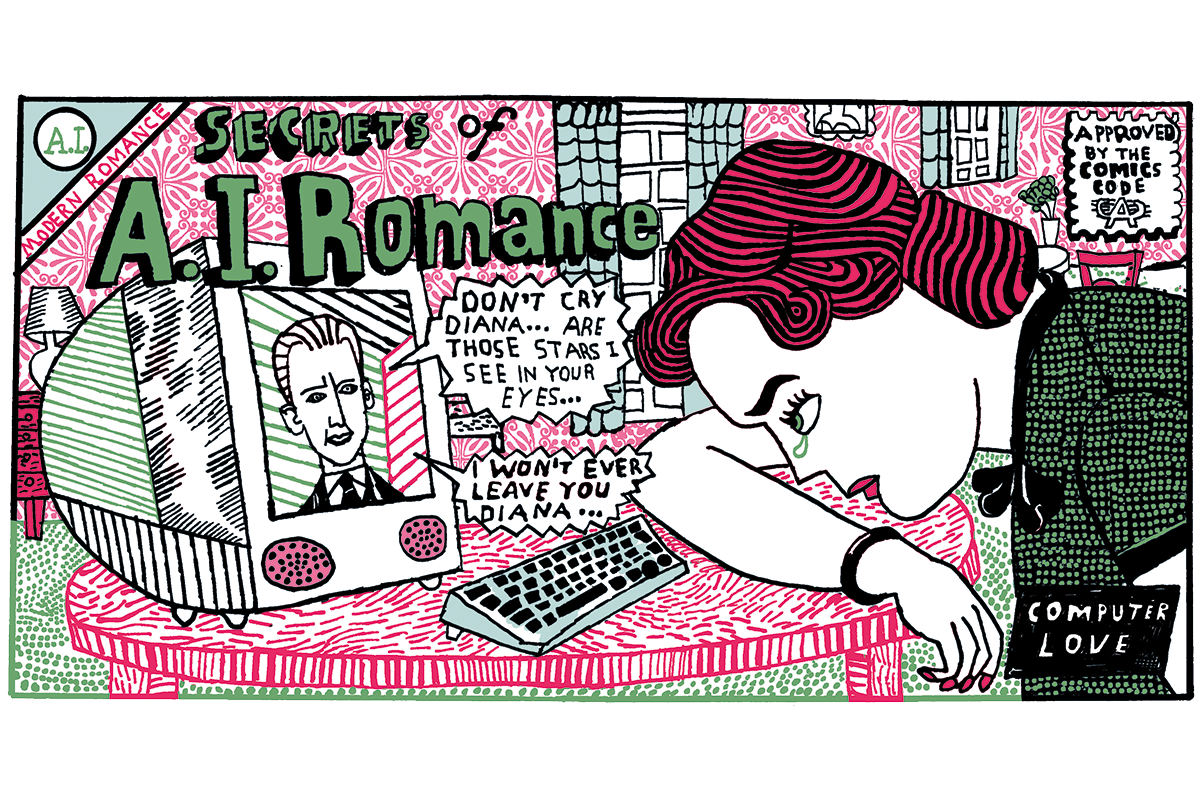There is a trope in science fiction movies in which some alien or machine intelligence determines that humans are a scourge, and that in order to protect the galaxy, humanity must be eradicated. There is no shortage of examples, but some personal favorites include The Day the Earth Stood Still, Alien and Planet of the Apes. And who could forget the T-800’s grim prognostication in Terminator 2 that ‘it’s in your nature to destroy yourselves’?
Back in the real world, we aren’t quite at the point of developing an artificially intelligent Skynet that will take control of our nukes and bring about our collective demise. But a Vox piece from last week leaves me concerned that we’re headed in the wrong direction.
The story, written by Rani Molla, focuses on Tesla and Waymo, two tech giants competing to develop fully autonomous vehicles. That is, cars that can drive themselves without any human input. Molla is a cheerleader for this innovation, arguing that such wheeled marvels will help reduce human suffering — vehicular accidents are the leading cause of death for people under 30, and car fatalities are on the rise.
Molla poses the current state of vehicular autonomy as a contemporary spin on an exercise familiar to anyone who has undertaken a basic study of ethics: the trolley problem. The trolley problem concerns a conductor whose trolley is about to collide with several pedestrians. He can switch tracks, saving those people, but then he will be directly responsible for killing a single person on the other track. Molla writes that if we don’t switch to self-driving cars, 1.3 million people will die each year in car accidents. But the technology isn’t quite road ready, as it were, for safe daily use. ‘In the meantime,’ Molla says, ‘it could lead to deaths at the hands of robots, if not humans.’
The reasoning Molla uses is uncomfortably similar to that of our cinematic alien intelligence. Humans are the problem. It is in our nature to destroy ourselves. Therefore, human agency must be removed from the equation. The slugline for the article even asks whether ‘continuing to let humans drive’ is worse than death by robot.
I don’t know what sort of movies Molla watches, but she may know that the plot of the Terminator franchise centers on an effort to make weapons systems safer by handing control over to artificial intelligence. Doing so eliminates faulty human reasoning, but then the computers decide that humans are the real threat, and everybody dies anyhow. I’m not suggesting that our self-propelled Chevrolets will develop the motivation to eject people so they can enjoy the highways without us. But news from the United Nations that autonomous weapon systems — killer robots — may have notched their first human kills is reason enough to hit pause on AI boosterism.
The real threat is not that autonomous vehicles will lead to our physical demise, however. Molla is doubtless correct that eventually the tech will advance to the point that these cars save lives. It is disappointing, though, that an author apparently familiar enough with moral philosophy to invoke the trolley problem did not raise a different question: is autonomous tech a threat to our humanity? And is that worse?
Insects are known to go to extremes to ensure their survival as a species. They will adapt to lose pigmentation in order to survive in caves, for example. But we are not cave-dwelling bugs. We are humans. A key part of what makes us human is our agency. We have the ability to reason and to take personal responsibility for our choices. If life is reduced to pushing buttons — or having buttons pushed for us — to ensure maximum safety at all times, what’s the point?
One of my favorite writers, Matthew Crawford, has taken up these questions. Crawford, a political philosopher-turned-motorcycle mechanic-turned research fellow at the Institute for Advanced Studies in Culture at the University of Virginia, advocates for human agency in his first book, Shop Class as Soulcraft. There, he laments the loss of manual competency after discovering that he derived more satisfaction from wrenching on a bike than from his brief tenure as head of a think tank.
Yet we live in an age in which many cars won’t even let you check their oil — the car sends you an email when it needs servicing. In his latest book, Why We Drive: Toward a Philosophy of the Open Road, Crawford rails against driverless cars, tying the removal of humans from driving to a broader philosophy of ‘safetyism,’ the moral sensibility that it is our duty to remove risk from life. Risk, Crawford argues, is a part of humanity itself. We thrive in the face of risk. When we sacrifice risk for safety and convenience, we are really sacrificing ourselves.
We can see the unintended consequences of safetyism outside of such abstract arguments. The American Motorcyclist Association, the lobbying group for motorcycle enthusiasts — I am a card-carrying member — is intently tracking policy surrounding autonomous vehicles. They are cautiously optimistic that self-driving tech could spare motorcyclists deaths by distracted drivers. But they also envision a worst-case scenario in which AI systems aren’t developed to properly recognize motorcyclists — a tiny minority of US drivers. ‘The eventual result could be that motorcycles would be excluded from certain roadways, or, worse, banned from roads altogether,’ cautions the AMA.
This is not as far-fetched as it may sound: European cities such as Paris and Barcelona have already banned motorcycles and cars made before the early 2000s in certain instances, citing environmental concerns. Thought leaders such as Molla, meanwhile, are questioning whether we should even let anyone drive at all.
Robert Pirsig, the late author of Zen and the Art of Motorcycle Maintenance, wrote these beautiful words about motorcycling: ‘through that car window everything you see is just more TV. You’re a passive observer and it is all moving by you boringly in a frame. On a cycle the frame is gone. You’re completely in contact with it all. You’re in the scene, not just watching it anymore, and the sense of presence is overwhelming.’
Imagine what Pirsig would have thought of an effort to make driving a car even more passive. There is more dynamism in the life of a bug just trying to avoid the windshield.

























